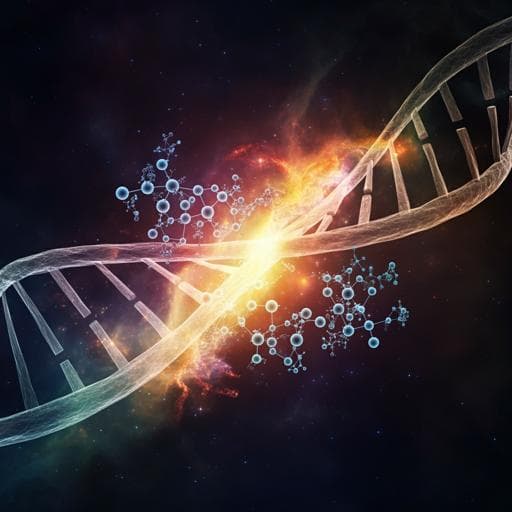
Interdisciplinary Studies
Cultures in the laboratory: mapping similarities and differences between Māori and non-Māori in engaging with gene-editing technologies in Aotearoa, New Zealand
L. Kathlene, D. Munshi, et al.
The study examines how culture shapes public engagement with genetic technologies, particularly the differences and similarities between Māori (Indigenous) and non-Māori perspectives in Aotearoa New Zealand. Gene-editing tools such as CRISPR-Cas9 have transformed applications in biomedicine, agriculture, and conservation, eliciting both enthusiasm for potential benefits and concern over ethical, social, and ecological consequences. Prior work shows that increasing scientific literacy alone does not resolve public concerns or risk perceptions for genetic technologies, challenging deficit-model approaches. The authors argue that communication and policy around new genetic technologies must attend to social and cultural contexts, acknowledging that scientific knowledge and technological practices are embedded in broader structures of power, values, and histories. Against this backdrop, the research aims to map public attitudes to genetic modification (GM) and gene editing (GEd) across application domains and to understand how Māori cultural values inform evaluations and policy preferences.
The paper situates its inquiry within science and technology studies and feminist science studies, which show that scientific and technological developments reflect and reproduce prevailing social, political, and cultural contexts, including Eurocentrism and colonial legacies. Debates over biotechnology and transgenic organisms have historically raised moral, political, and social tensions around issues such as commercial interests versus public good, democracy, and perceived transgressions of natural boundaries. In Aotearoa New Zealand, public discourse and regulation have evolved since the late 1980s, shaped by the Royal Commission on Genetic Modification (RCGM) and subsequent institutional developments (e.g., Bioethics Council, HSNO Act provisions acknowledging the Treaty of Waitangi). Ongoing regulatory debates concern whether gene editing should be distinguished from GM or treated within existing GM frameworks. The Royal Society Te Apārangi’s expert panel advocated nuanced, application-focused assessments and highlighted the importance of Māori values in decision-making. Foundational work (Hudson et al., 2019) articulated key Māori values relevant to genetic technologies—whakapapa (genealogy), mauri (life essence), mana (authority), kaitiakitanga (guardianship), mātauranga (Indigenous knowledge), and others—and found that Māori consider gene editing on a case-dependent basis aligned with Māori worldviews. Culture-centered approaches from climate communication research (e.g., values, place, power, narrative) further underscore the need to integrate cultural contexts in science communication and policy.
An online national survey (July 2019) targeted a stratified random sample yielding equal numbers of Māori and non-Māori; 830 respondents completed the survey (50% Māori). Eligibility required New Zealand citizenship or permanent residency. Data collection was conducted via Qualtrics; the authors designed the instrument and analyzed data using IBM SPSS Statistics v25. The survey included six topic areas: (1) familiarity with and support/opposition to GM in general and by application (human medical treatments, reproductive barriers, longevity, cosmetic enhancement, livestock and plant modification for productivity/resilience, pest control, restoration of extinct species, resilience of native species); (2) analogous familiarity and support/opposition for gene editing (GEd); (3) views on NZ’s legal framework for GM/GEd; (4) importance of Māori values (e.g., kaitiakitanga, whakapapa, mana, mauri) in guiding gene editing decisions; (5) support for using GEd to alter taonga (native) species; (6) conditions deemed appropriate for commercialization of products using these technologies. The instrument comprised 21 Likert-scale items, 12 open-ended questions, nine multiple-choice items, four thermometer questions, and eight demographic questions; all items required responses (with “I don’t know” available for scale items). Descriptive and bivariate analyses preceded multivariate exploration. K-means cluster analysis (case-based segmentation; Euclidean distance; iterative updating) was used to identify attitudinal subgroups among Māori and non-Māori. Convergence was achieved in 18 iterations with coordinate change for each cluster center set to 0.000. ANOVA tests (reporting F-tests) assessed the contribution of variables to case classification; all clustering variables showed high discriminative power (p < 0.001), including awareness measures and application-specific support ratings for both GM and GEd.
- Six cluster typologies emerged, differentiated by overall stance (Strongly Supportive, Leaning Supportive, Opposed) and ethnicity (Māori, non-Māori). Example distribution noted: 33% Māori Leaning Supportive, 13% Māori Strongly Opposed, 12% non-Māori Strongly Supportive, 23% non-Māori Leaning Supportive, and 8% non-Māori Opposed (with the remaining proportion in other clusters; see Supplementary Table S1 in the article). The largest share across groups fell into Leaning Supportive clusters.
- Awareness: Genetic modification (GM) was widely recognized, while gene editing (GEd) was less familiar across clusters.
- Overall stance: All clusters, regardless of their general orientation, were more supportive of GEd than GM. Attitudes toward GEd strongly tracked pre-existing views on GM; there were no clusters that supported one technology but opposed the other.
- Application specificity: Support varied by application rather than by technique alone. Human medical treatments received the highest support across clusters (five of six clusters rated above neutral), whereas cosmetic enhancements received the least support (opposed by four of six clusters; only the two Strongly Supportive clusters rated it favorably, and even then, lowest among supported applications).
- Ethnic differences: Māori in the Strongly Opposed cluster were more intensely opposed than non-Māori counterparts. In Leaning Supportive clusters, Māori were generally less supportive than non-Māori for many applications. In Strongly Supportive clusters, Māori and non-Māori showed similar high support across applications.
- Taonga (native) species: Support for editing taonga was highest for human health and disease control. Among Strongly Supportive clusters, about 60% supported editing taonga for human health; among Leaning Supportive clusters, about 34% did so; fewer than 16% in Opposed clusters supported this use. For animal health/breeding and plant breeding, Māori Strongly Supportive were more supportive than non-Māori Strongly Supportive, but in Leaning Supportive and Opposed clusters, non-Māori were more supportive than Māori. Two-thirds (67%) of Māori in the Opposed cluster endorsed that taonga should never be edited, compared to about one-third among non-Māori Opposed; similar trends held (at lower levels) in other clusters.
- Māori values: Across all Māori clusters, Māori values (e.g., whakapapa, mana, kaitiakitanga, mauri) were rated as extremely important for guiding decisions about GEd, with perceived importance increasing with opposition to technologies. Non-Māori generally rated Māori values as less important, except among Strongly Supportive non-Māori who showed higher endorsement—potentially reflecting higher education levels and recognition that regulatory change requires Māori support.
- Statistical discrimination: Variables used in clustering (awareness and application-specific support ratings for GM and GEd) significantly differentiated clusters (ANOVA F-tests, p < 0.001).
The findings demonstrate that cultural context and application-specific considerations are central to how the public interprets genetic technologies. While knowledge of GM and GEd differs in prevalence, attitudes are structured less by awareness per se and more by values and perceived purposes. The consistent pattern of greater support for GEd than GM suggests that respondents differentiate between techniques, but application domain (e.g., human health versus cosmetic enhancement) ultimately drives acceptability. Māori respondents, especially in Opposed and Leaning Supportive clusters, expressed greater ambivalence and opposition than non-Māori, aligning with Māori values emphasizing whakapapa, mauri, mana, and kaitiakitanga. These values shape thresholds for acceptability, particularly concerning interventions in taonga species. The prominence of the Leaning Supportive clusters indicates an opportunity for culture-centered engagement that addresses specific applications, clarifies risks and benefits, and explicitly integrates Māori values in governance. Non-Māori Strongly Supportive respondents’ higher endorsement of Māori values suggests a pathway for coalition-building around respectful, inclusive policy design. Overall, the results affirm that policy and communication strategies should be tailored to cluster-specific concerns, with special attention to Māori perspectives and to applications where support is contingent (e.g., pest control, livestock profitability, cosmetic uses).
This study maps nuanced cultural perspectives on genetic technologies in Aotearoa New Zealand, revealing six distinct attitudinal clusters by ethnicity and support level. Regardless of stance, respondents tended to be more supportive of gene editing than genetic modification, with strongest support for human medical applications and least for cosmetic enhancements. Māori respondents placed high importance on Māori cultural values in guiding decisions, and were generally more cautious or opposed than non-Māori in comparable clusters, particularly concerning interventions in taonga species. The findings underscore the need for culture-centered engagement and application-specific policy design that explicitly incorporates Māori values and perspectives. Future research should: (1) deepen qualitative exploration within clusters, especially the Leaning Supportive groups, to understand how deliberation and new information shift attitudes; (2) examine how specific value framings influence support across applications and populations; and (3) evaluate participatory governance models that embed Māori decision-making and culturally grounded assessment frameworks for emerging gene technologies.
Cluster analysis is an exploratory, case-classification method that does not distinguish between dependent and independent variables; inferential statistics are not appropriate for assessing differences between clusters. While ANOVA F-tests supported the usefulness of variables for classification, the segmentation should be interpreted descriptively rather than as evidence of causal relationships or statistically tested group differences.
Related Publications
Explore these studies to deepen your understanding of the subject.







